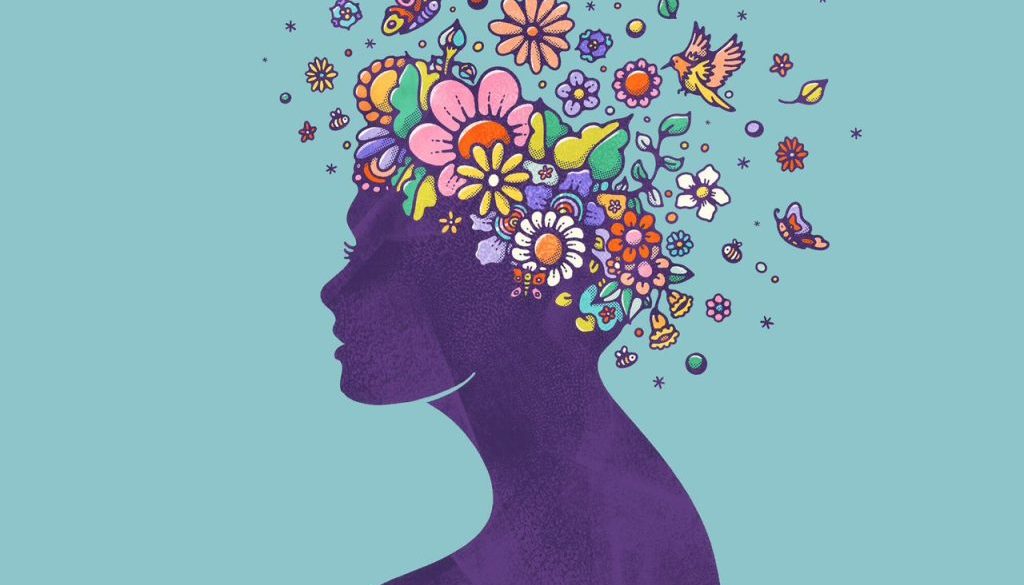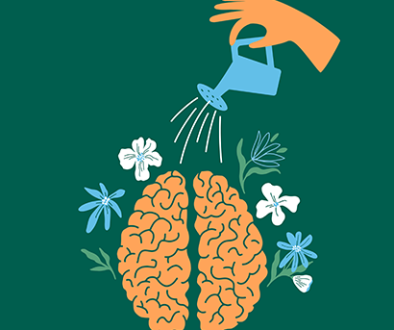Postpartum depression
Postpartum depression is a serious mental health condition that affects some individuals after the birth of a child. While childbirth is often seen as a joyous event, some new mothers experience overwhelming feelings of sadness, anxiety, and fatigue. This condition is different from the more common “baby blues,” which are usually mild and last for a short period. Postpartum depression is more severe, can last for months, and may interfere significantly with a mother’s ability to care for her baby and herself.
Causes of postpartum depression
The causes of postpartum depression are not fully understood, but it is thought to be the result of a combination of biological, emotional, and environmental factors.
Hormonal changes are believed to play a major role in postpartum depression. During pregnancy, levels of estrogen and progesterone are high, but they drop sharply after childbirth. This sudden hormonal shift can trigger chemical changes in the brain that lead to depression. Thyroid hormone levels may also decrease after delivery, contributing to feelings of exhaustion and emotional instability.
Emotional factors can also contribute to postpartum depression. The demands of caring for a newborn, combined with sleep deprivation and feelings of being overwhelmed, can increase stress levels. Some mothers may feel inadequate or guilty, believing that they are not living up to expectations, either their own or those imposed by society. The emotional transition to motherhood, with its new responsibilities and challenges, can heighten these feelings.
Environmental factors also play a role. Lack of support from family, friends, or a partner can contribute to feelings of isolation and stress. Financial pressures, relationship difficulties, and major life changes during or after pregnancy may increase the risk of developing postpartum depression. Mothers who have a history of mental health disorders, especially depression or anxiety, are more likely to develop postpartum depression. A complicated pregnancy, such as one involving health issues or the loss of a child, can also elevate the risk.
Symptoms of postpartum depression
The symptoms of postpartum depression can range in severity but often include persistent feelings of sadness, hopelessness, or emptiness. Those affected may experience severe mood swings, irritability, or anger. It is common for people with postpartum depression to feel disconnected from their baby and to struggle with bonding. In some cases, they may feel like they are failing as a parent, leading to intense feelings of guilt and worthlessness. Other symptoms may include fatigue, loss of appetite, changes in sleeping patterns (either insomnia or excessive sleep), and difficulty concentrating or making decisions.
In extreme cases, postpartum depression can lead to thoughts of self-harm or harming the baby. This situation, though rare, is a medical emergency and requires immediate attention.
Diagnosis and treatment
Diagnosis of postpartum depression typically involves a thorough evaluation by a healthcare provider. This can include a discussion of symptoms, medical history, and mental health history. Screening tools, such as questionnaires, are often used to assess the severity of depression. Early detection is crucial in ensuring that proper care is provided.
Treatment for postpartum depression often involves a combination of therapies. Psychotherapy, particularly cognitive-behavioral therapy (CBT) and interpersonal therapy (IPT), is commonly recommended. These therapies help individuals identify negative thought patterns and develop coping strategies to manage their emotions and relationships.
Medications, such as antidepressants, may also be prescribed to help manage the chemical imbalances contributing to depression. For breastfeeding mothers, healthcare providers carefully choose medications that are safe for the baby. In some cases, hormone therapy may be used to address hormonal imbalances that contribute to depression.
Support groups and peer counseling are also beneficial for individuals experiencing postpartum depression. Having a supportive network can help reduce feelings of isolation and provide comfort during the recovery process.
Impact of postpartum depression
Postpartum depression affects not only the mother but also the baby and the entire family. Mothers with untreated postpartum depression may struggle to bond with their baby, which can affect the baby’s emotional and cognitive development. Studies have shown that children of mothers with postpartum depression may be at higher risk for behavioral and emotional problems later in life.
The partner or other family members may also feel the strain. They may struggle to understand the mother’s emotions and behavior, which can lead to relationship tension or stress. Additionally, the burden of caring for the baby may fall more heavily on the partner or family, causing further strain.
Postpartum depression can be especially challenging for women with pre-existing mental health conditions, as it may worsen symptoms of depression or anxiety. However, with appropriate treatment and support, most individuals recover fully and go on to enjoy healthy, happy relationships with their children.
Prevention of postpartum depression
While there is no guaranteed way to prevent postpartum depression, certain steps can reduce the risk. Women with a history of depression or anxiety should speak with their healthcare providers during pregnancy to develop a plan for monitoring and managing their mental health after delivery. Attending prenatal classes, building a strong support system, and discussing emotional expectations with partners can also help.
In some cases, early intervention with counseling or medication during pregnancy may be recommended for women at higher risk of postpartum depression. Postpartum checkups that assess both physical and mental health are essential in identifying symptoms early and starting treatment promptly.
In Conclusion
Postpartum depression is a serious and sometimes debilitating condition that can affect any new mother. It is important to recognize that postpartum depression is not a reflection of a person’s abilities as a parent. With proper treatment, individuals can recover fully and enjoy their new role as a parent. Early detection and intervention, along with support from healthcare providers and loved ones, are crucial in managing and overcoming postpartum depression.



